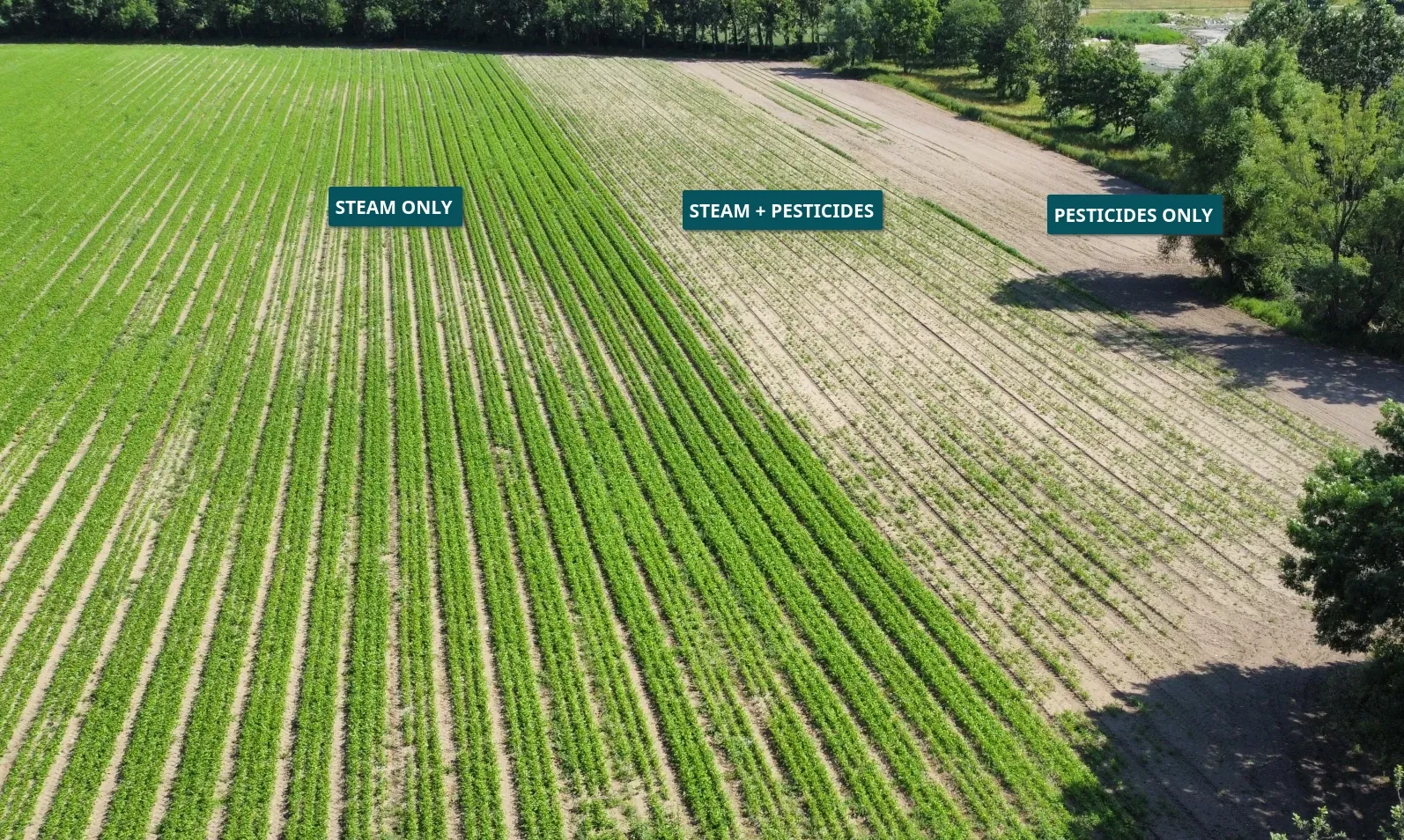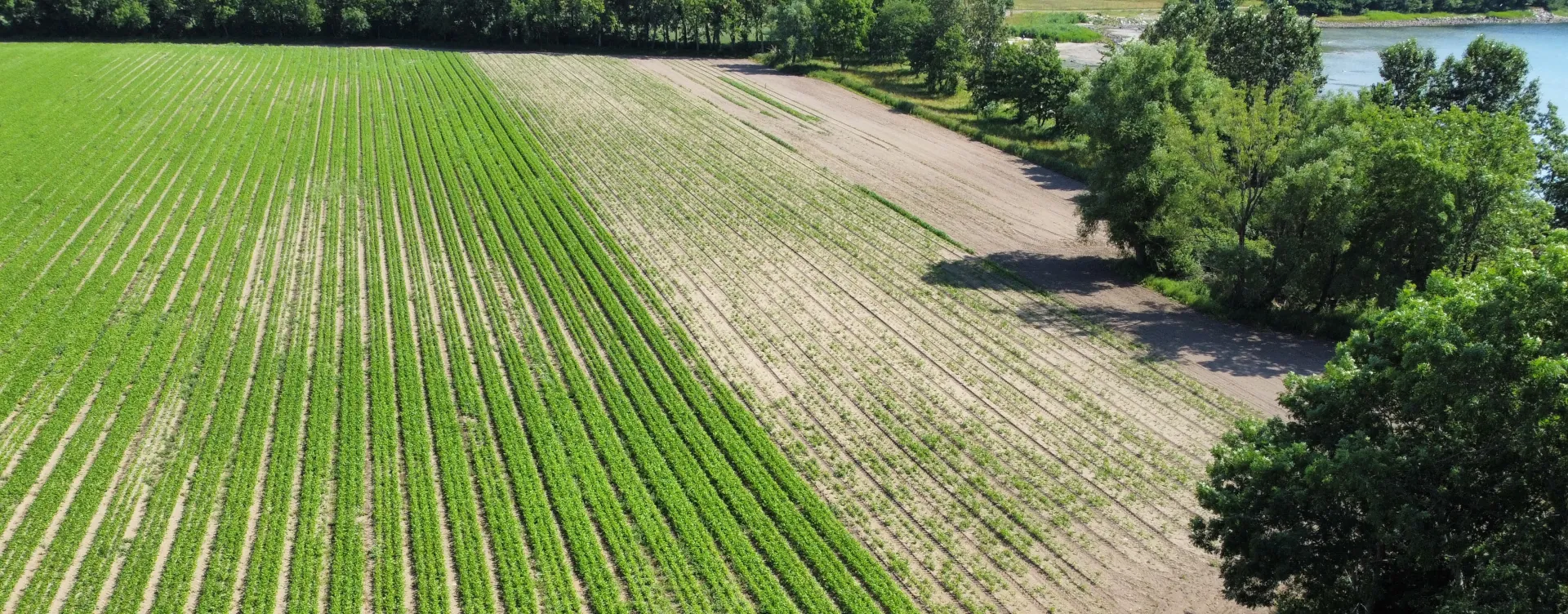

We have been steaming soil for over 20 years. We have always seen good results after steaming. On one hand, hardly any weeds come up in steamed soil. On the other hand, what is planted in the steamed soil often grows better. Here you can see several examples of very good results from soil steaming that we have done.
We have been steaming soil for more than 20 years. We have always seen good results after steaming. On one hand, hardly any weeds come up in steamed soil. On the other hand, what is planted in the steamed soil often grows better. Here you can see several examples of very good results from soil steaming that we have done.
In 2021, we were in Spain and steamed for one of Europe’s largest vegetable producers. In one area where they grew Babyleaf (lettuce), they experienced poor growth, poor color, and high mortality of plants. This was due to soil disease. Such soil diseases cannot be combated with chemicals as the chemicals do not penetrate the soil masses. Steam, however, manages to penetrate the soil masses and the results can be seen below. In the areas we steamed, the soil disease was eliminated, and the babyleaf grew beautifully again.
For the same producer, we also steamed parts of the areas where they were to grow celery and regular lettuce. There was significantly better growth in the crop in the steamed areas, and the pictures below illustrate the differences in growth.
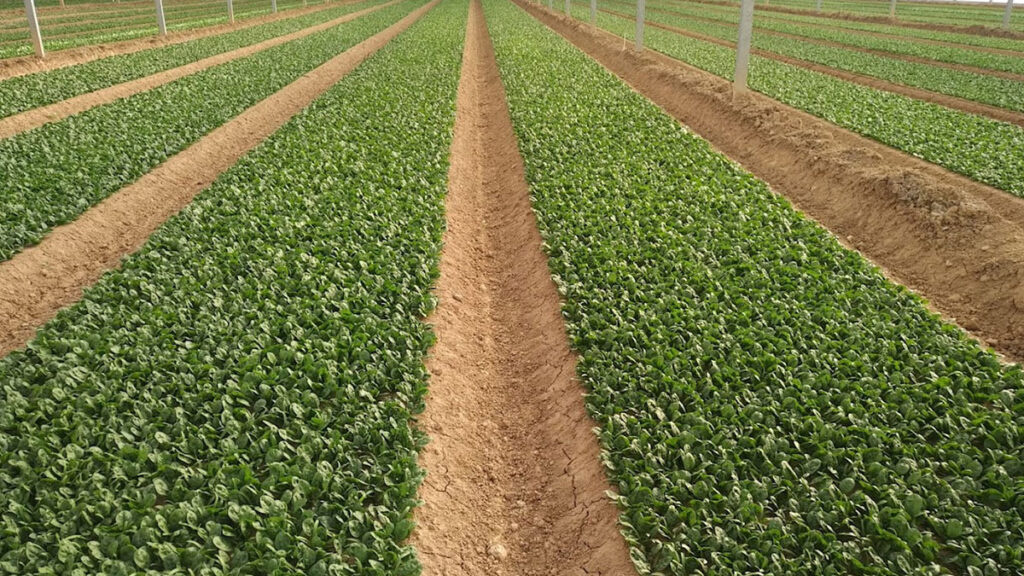
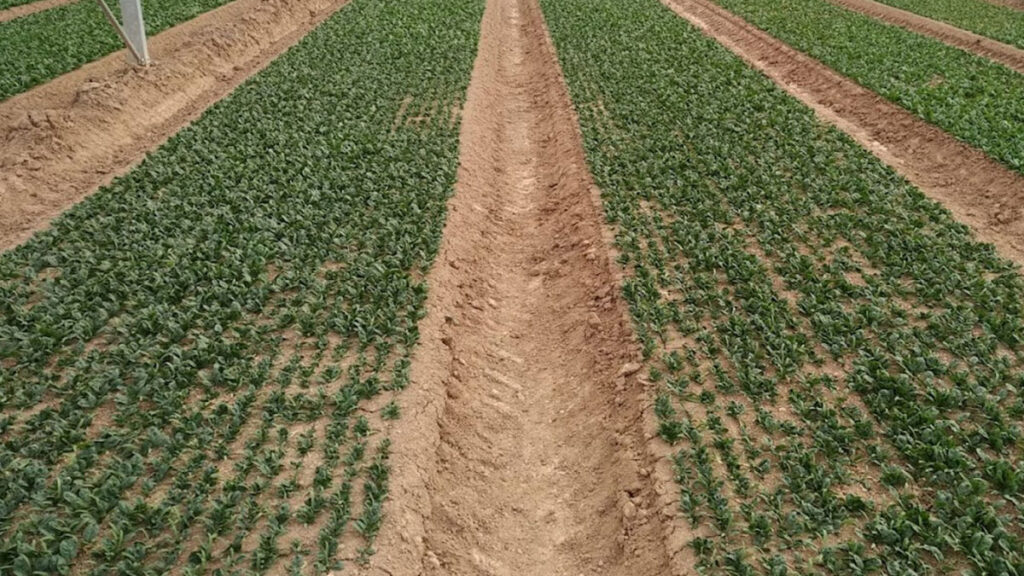
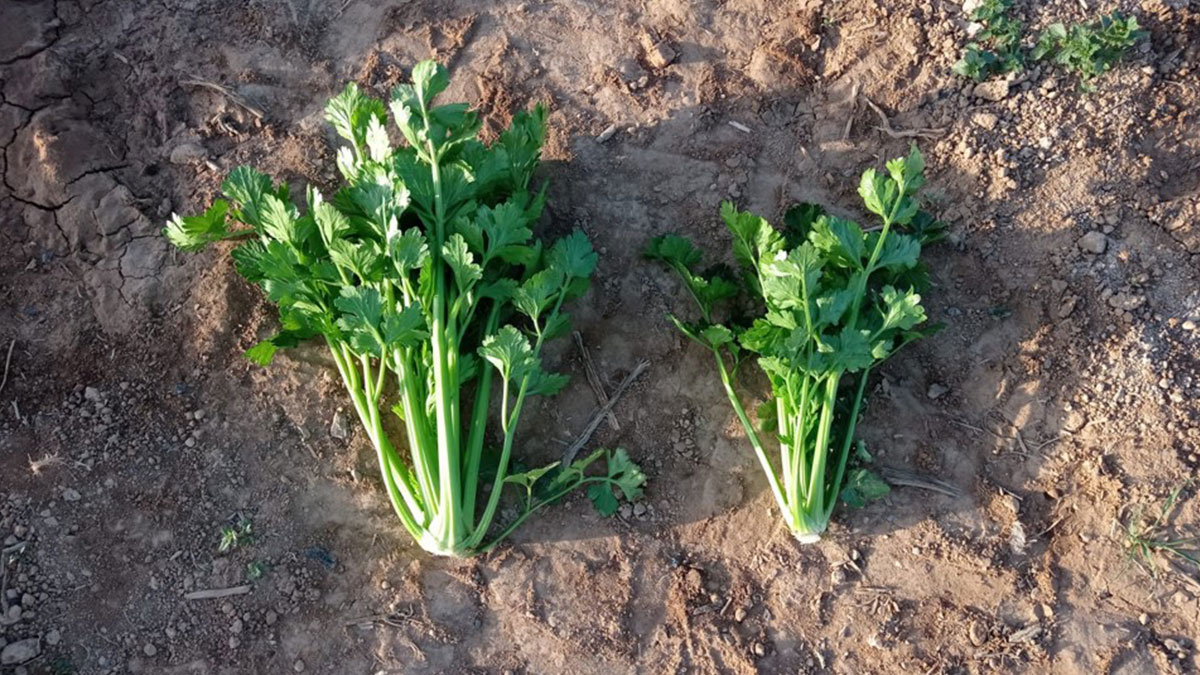
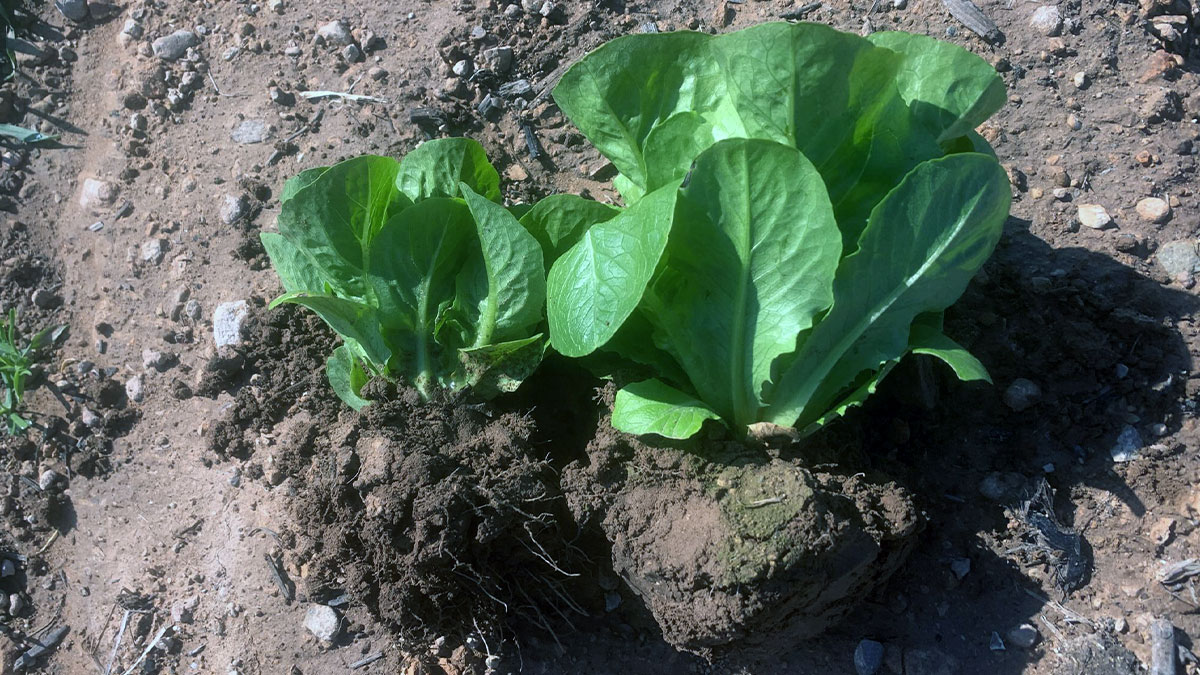
With our SoilSaver, we treat soil out in facilities. This can be soil that contains foreign species or plant pathogens. Such soil masses have traditionally been buried or sent to landfill because one wants to prevent these harmful organisms and species from spreading. With our SoilSaver, these soil masses can be treated and reused. In the picture below, you can see the results from a test we did where we steamed about half of a soil mound. The part of the mound that was steamed was completely free of weeds while it grew densely in the untreated part of the mound.
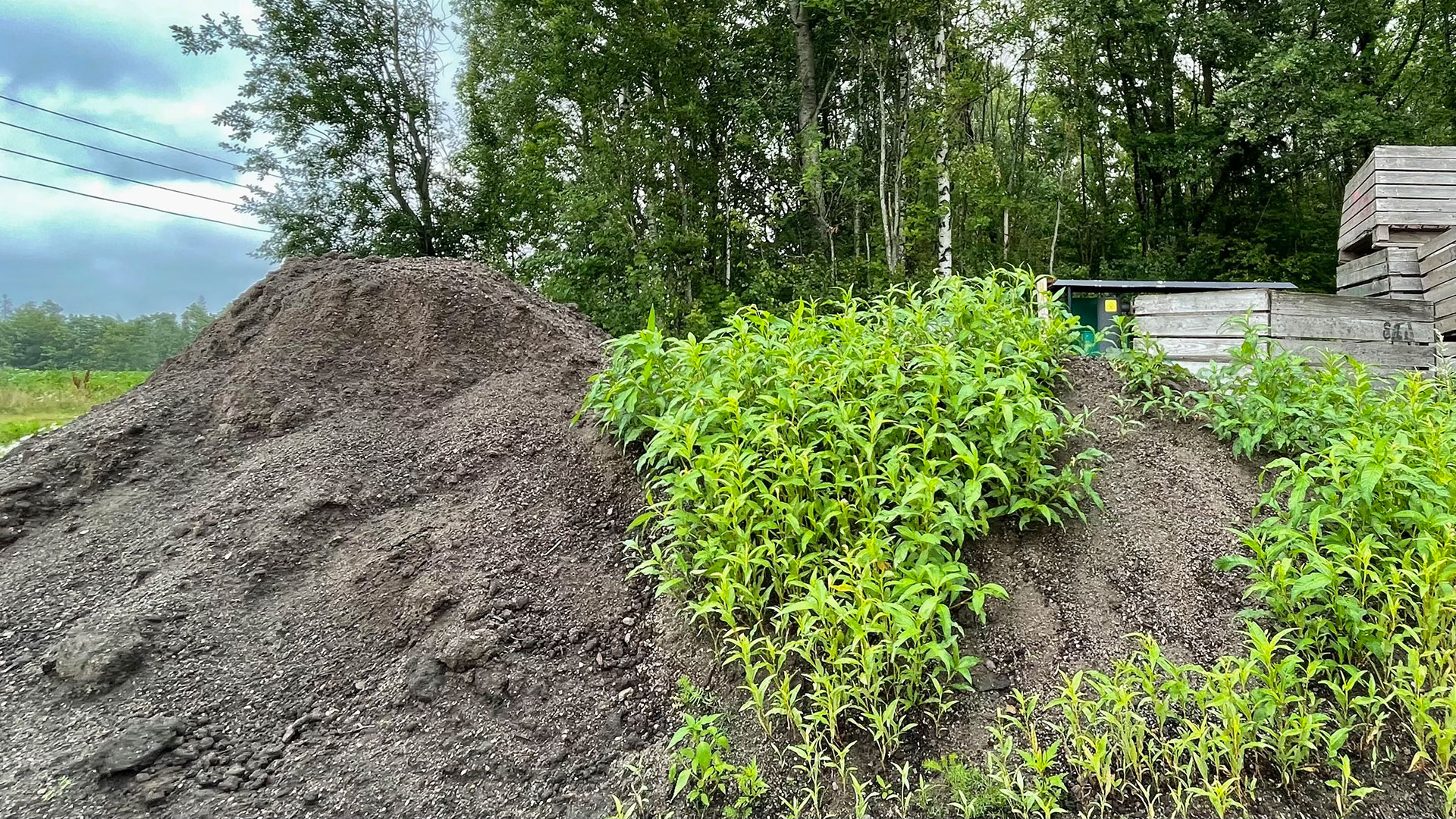
The picture below shows how our steam technology combats Giant Hogweed (Heracleum mantegazzianum). This is an invasive foreign species that creates major problems in Northern Europe. There is no life in the steamed soil while it grows fine in the control.
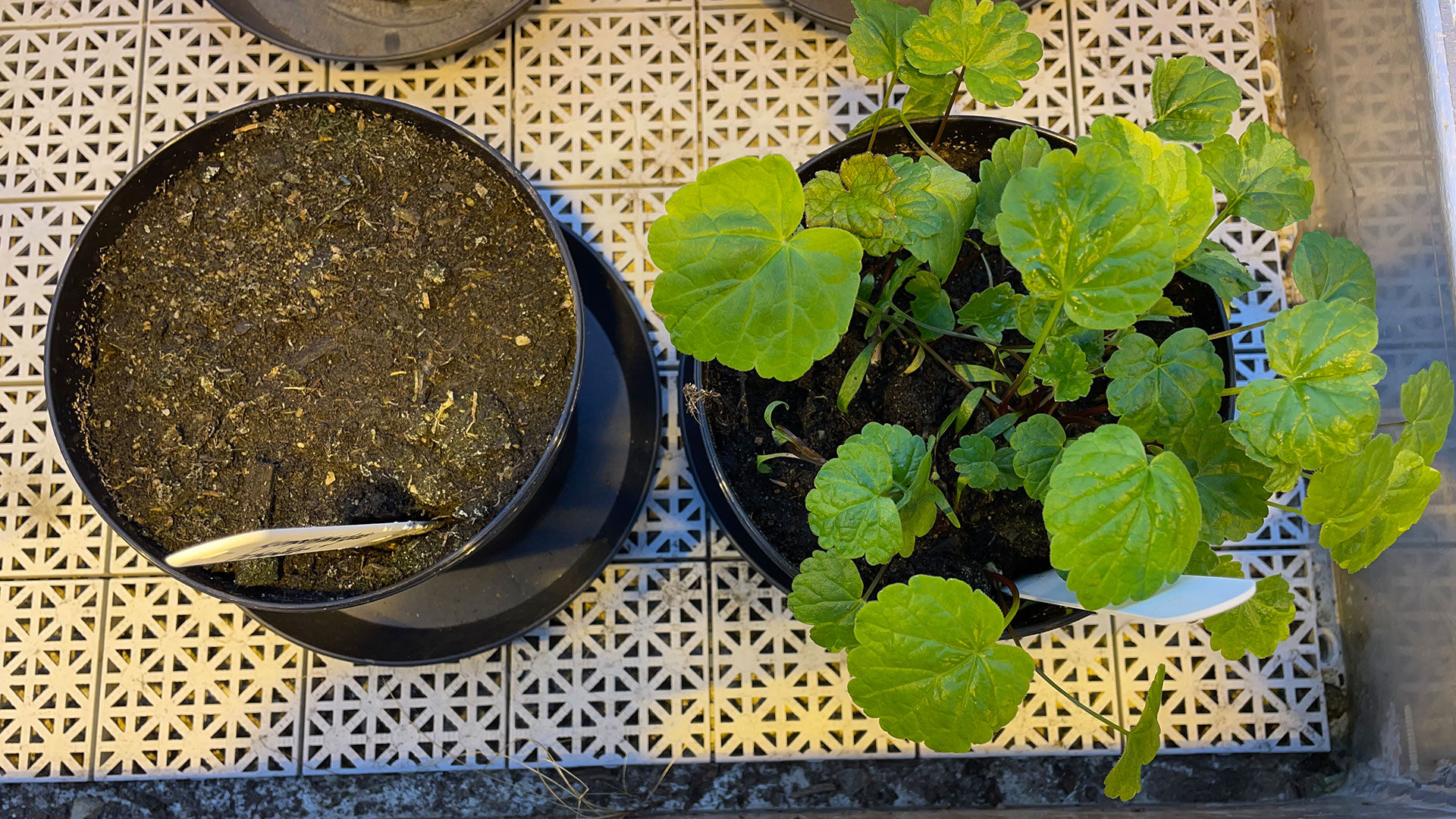
In 2022, we did some tests where we steamed with our FieldSaver outside Oslo in Norway. You can see the five-meter-wide strip we steamed. There is no weed in that part, while it is completely green on both sides (weeds). In the foreground of the picture, you can see that the farmer has crossed the steamed strip with his tractor. You can see how his wheels have contaminated the steamed area just by the wheels crossing the steamed part. This is a very good illustration of how easily weeds spread. The seeds are everywhere, and they can be spread with wheels, animals, or a human’s boots.
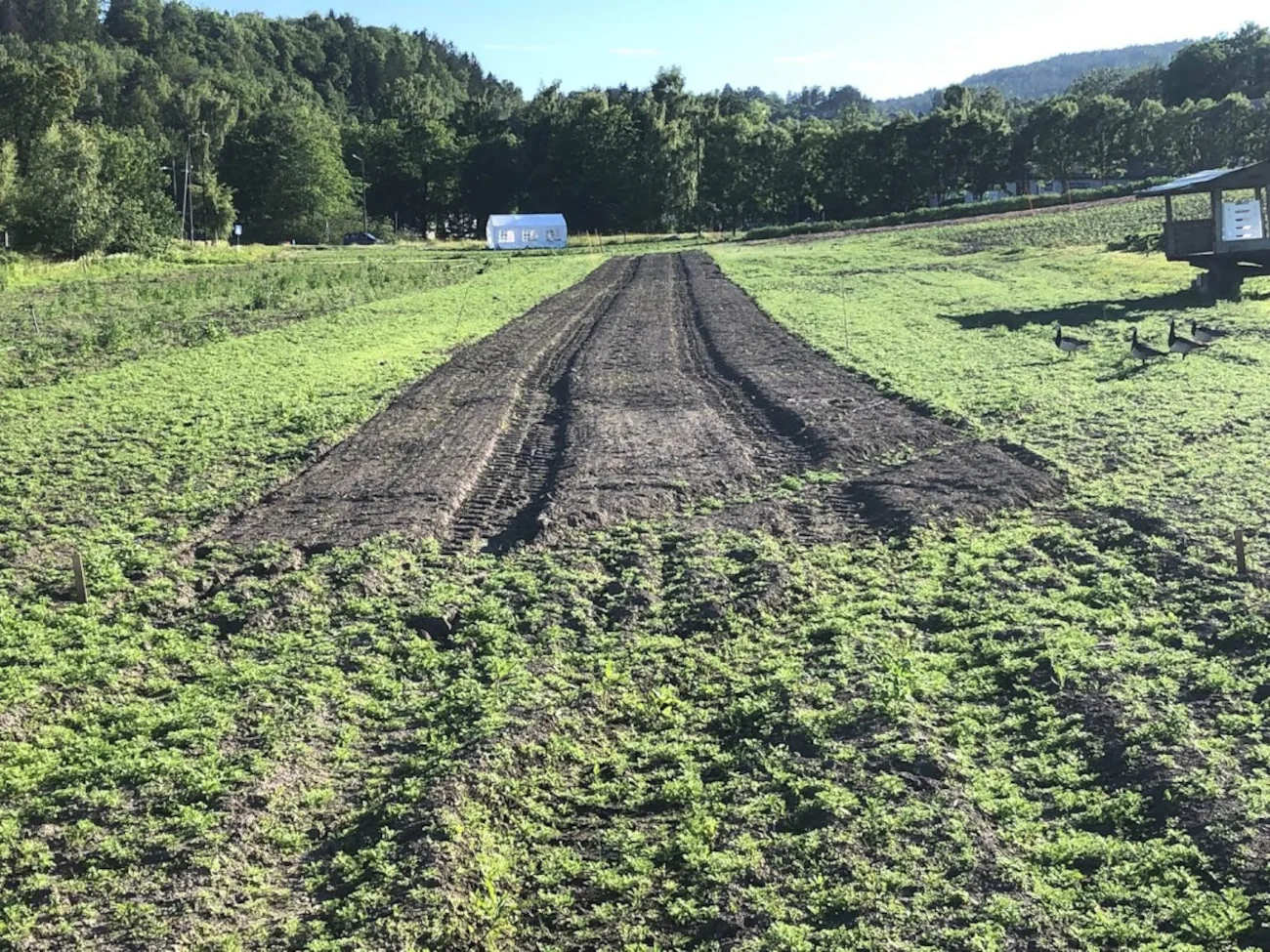
This is another example showing how well soil steaming works. The farmer had major problems with weeds and poor soil quality in a field with parsley root. In this experiment, part of the field was steamed (left), part of the field was treated with pesticides and steam (middle), and part of the field was treated with only pesticides (right). It should be noted that the farmer used pesticide doses that were higher than recommended. At the end of the season, the farmer had a 330% higher yield in the steamed part compared to the part treated with pesticides. An increase in yield of 180% was estimated from the steamed area compared to a normal parsnip yield in a healthy field. The results are fantastic, and in the picture, you can clearly see how the steamed area grows far better than the unsteamed as well.
